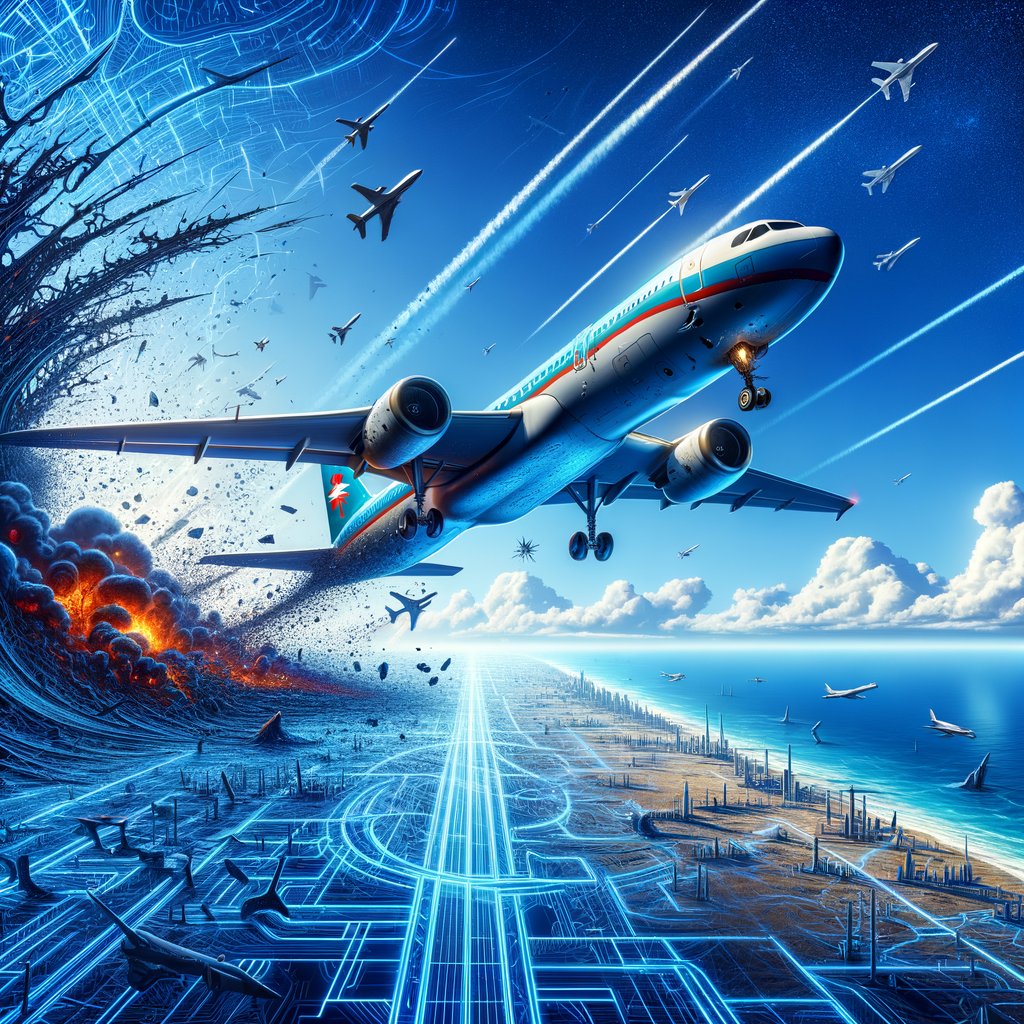Image created by AI
A Crisis of Responsibility: Anguish in Azerbaijan Over Russian Response to Fatal Plane Crash
In a tragedy that has strained the diplomatic ties between Azerbaijan and Russia, the crash of Azerbaijan Airlines Flight 8243 on Christmas Day has sparked controversy and outrage. The aircraft, en route from Baku to Grozny, encountered fatal interference over Russian airspace, resulting in the death of 38 individuals, with only 29 survivors.
This incident has dredged up painful memories and stark contrasts in diplomatic conduct. Recall, during the Nagorno-Karabakh conflict's conclusion in November 2020, Azerbaijan promptly admitted to accidentally shooting down a Russian helicopter, an action met with immediate apologies and reparations from Azerbaijani President Ilham Aliyev to his Russian counterpart. However, the reciprocity expected now seems lacking as Russia hesitates in its accountability over the recent air disaster.
Initial Russian speculations suggested mundane causes like bird strikes or technical malfunctions, but later evidences pointed towards more severe implications including possible missile interference. Despite this, Russian President Vladimir Putin's response was muted. While he expressed regret over the "tragic incident," he stopped short of acknowledging culpability, instead suggesting Ukrainian drone activity in the vicinity as a possible factor.
The response from Azerbaijan has been one of unsparing criticism, particularly focusing on the denial of an emergency landing which could have potentially saved lives. Azerbaijan's dismay is compounded by their own historical accountability in similar incidents, heightening expectations for Russia to reciprocate with equivalent forthrightness.
Leyla, a native of Baku, encapsulated the national sentiment when she highlighted the "lack of humanity" apparent in denying the distressed aircraft landing permission. Such actions—or lack thereof—have not only caused grief but have also catalyzed a reevaluation of the diplomatic rapport between the two nations.
The broader geopolitical landscape further complicates the aftermath of the crash. Azerbaijan and Russia share a complex relationship, colored historically by both cooperation and tension since Azerbaijan's brief independence after the fall of the Russian Empire and subsequent 70 years under Soviet rule. In recent history, despite a backdrop of coups and conflicts, the economic and diplomatic engagements have remained significant, with Russia being a major trade partner and mediator in the protracted Nagorno-Karabakh conflict.
The incident thus casts a long shadow over future interactions. Political analysts and lawmakers in Azerbaijan, such as Rasim Musabeyov, emphasize the importance of economic ties but recognize that the current situation demands a robust and sincere response from Russia to mend the fraying trust.
The incident not only poses an immediate diplomatic challenge but also a possible pivot point in regional dynamics, contingent on Russia’s subsequent actions—acknowledgment, analysis, punishment of culprits, and compensation—as proposed by President Aliyev. Such measures are crucial not only for the families affected but also for sustaining a complicated, yet pivotal, regional partnership.










